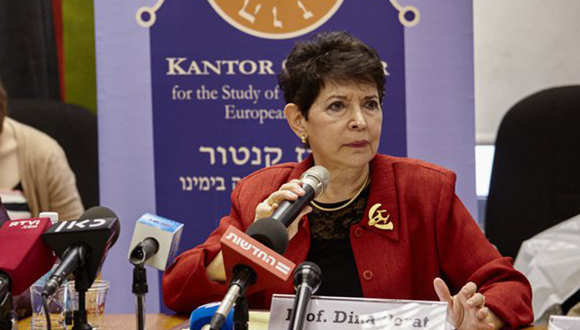COVID-19 pandemic has unleashed unique worldwide wave of anti-Semitism

Kantor Center at TAU releases special report
Support this researchThe Kantor Center for the Study of Contemporary European Jewry at Tel Aviv University, published a special report, a summary of worldwide anti-Semitic phenomena associated with the COVID-19 pandemic. The report relies on hundreds of accounts from different locations around the globe from March-June.
- The new wave of anti-Semitism includes a range of libels that have one common element: The Jews, the Zionists and/or the State of Israel are to blame for the pandemic and/or stand to gain from it.
- The anti-Semitism generated by the coronavirus is intensive and fierce, has continued unremittingly for several months and reflects a high level of anxiety and fear in many populations.
- Coronavirus-related anti-Semitism is manifested throughout Europe, in the Americas and in the Muslim world. This new type of anti-Semitism, which partly reiterates classic anti-Semitic themes, includes conspiracy theories alongside medieval blood libels, now renewed in a 21st century format.
- Coronavirus-related anti-Semitism is propagated mostly by right-wing extremists, ultra-conservative Christians and Islamists, through their own media in various languages.
- Islamists describe Israel as the COVID-1948 virus — after the year in which the Jewish state was established, declaring that this is the most dangerous virus of all.
- Activists in movements for delegitimizing Israel use the same argument. In addition, they accuse Israel of using the coronavirus as ammunition against the Palestinians.
- An Oxford University study revealed that 19.1% of the British public believes that the Jews caused the pandemic.
The reports come from an international network of volunteers, living in 35 countries, who are trained to identify and classify acts of anti-Semitism and add the material to The Moshe Kantor Database on Anti-Semitism. The network was established by the Kantor Center over 30 years ago and today numbers 60 participants. The database is a real-time collection of materials and resources on trends and events related to contemporary anti-Semitism, which includes English summaries based on source materials in all languages and formats including texts, visuals and audiovisuals.
Professor Dina Porat, Head of the Kantor Center, says, “These common motifs perpetuate anti-Semitic accusations from previous generations and other global catastrophes, once again presenting the well-known image of the Jew. However, the anti-Semitism generated by the coronavirus is fiercer and more intensive, has continued unremittingly for several months, and reflects a high level of anxiety and fear in many populations. This having been said, the situation should be seen in its overall context — in which others are also blamed for spreading the virus: first of all, the Chinese, 5G antennas and the authorities who allegedly are not doing enough to stop the epidemic. Countries close down their borders, every foreigner is a suspect, and no new immigrants are allowed.”
Coronavirus-related anti-Semitism is manifested in many parts of the world: A significant portion comes from the US and from Middle Eastern countries such as Iran, Turkey and the Palestinian Authority, but also from Europe and South America. In the US, accusations come mainly from white supremacists and ultraconservative Christians, pointing the finger at Jews in general and Haredi Jews in particular, while accusers in the Middle East mostly blame Israel, Zionism and the Mossad for creating and spreading the virus and intending to make a vast fortune from medications and the vaccine they are already developing.
In the western world, the main elements promoting anti-Semitic discourse are civil society groups with various ideologies, while in the Middle East some of this discourse is put forth by the regimes themselves.
Dr. Giovanni Quer, director of the Kantor Center, adds, “Universal disasters have been attributed to the Jews and to Israel before, giving rise to anti-Semitic discourse — such as conspiracy theories blaming Israel for 9/11, or false reports accusing Israeli soldiers of harvesting organs from the bodies of dead Palestinians. The current wave of anti-Semitism is unprecedented, however, because, spreading very swiftly through the social media, it focused at first on the COVID-19 crisis and then quickly moved on because of social and political changes: Just a few days passed between the coronavirus crisis and the racism-related social crisis in the US, but anti-Semitic discourse remained just as fierce, with its proponents simply adapting their anti-Semitic narratives to the changing social contexts.”